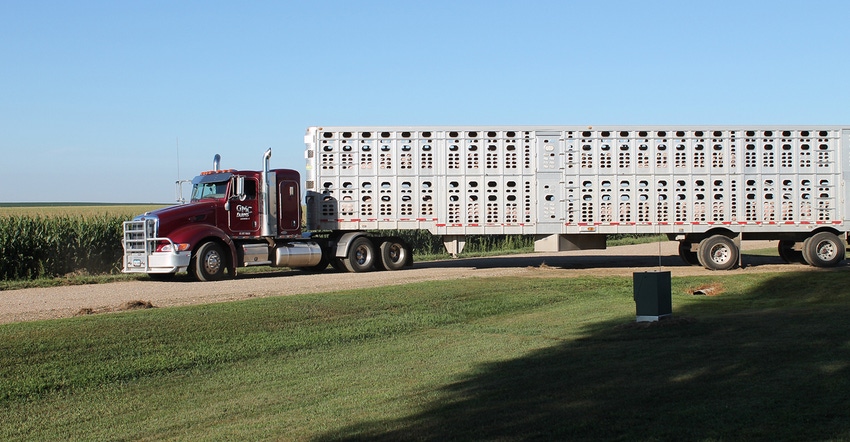Legislative Watch: Increasing regulatory oversight, banning CAFOs; CRP enrollment begins Feb. 27; Senate Ag Subcommittees leadership named.

The issues of concentration and competition in the meat, poultry and livestock industries continue to garner Congressional interest. A number of bills have been introduced this session of Congress that deal with cattle pricing, expanding meat processing, increasing regulatory oversight, banning concentrated animal feeding operations, etc. It is expected that some of the bills will be considered during this year's farm bill debate.
A summary of the various bills:
Meat Packer Special Investigator (Senators Jon Tester (D-MT), Chuck Grassley (R-IA) and Mike Rounds (R-SD): The bill would establish within USDA an Office of the Special Investigator for Competition Matters. The office would be comprised of a team of investigators, with subpoena power, responsible for targeting and preventing anti-competitive practices amongst large players in the meat and poultry industries.
American Beef Labeling Act (Senators John Thune (R-SD), Jon Tester (D-MT), Mike Rounds (R-SD) and Cory Booker (D-NJ): The legislation would reinstate mandatory country of origin labeling (MCOOL). The USTR would be required to consult with USDA to develop a WTO compliant means of reinstating MCOOL for beef within one year of enactment. USTR would have six months to develop a plan followed by six months to implement it. If USTR fails to reinstate MCOOL within one year, it would automatically be reinstated for beef.
Cattle Price Discovery and Transparency Act of 2023 (Senators Deb Fischer (R-NE), Ron Wyden (D-OR), Chuck Grassley (R-IA) and Jon Tester (D-MT): The legislation would establish regional cash minimums and permanently authorize a cattle contract library.
Requires USDA to establish 5-7 regions covering the continental United States and that reasonably reflect similar fed cattle purchases.
Designates a set of approved pricing mechanisms for covered packers that contribute to price discovery and transparency. These include fed cattle purchases through negotiated cash, negotiated grid, at stockyards and through trading systems where multiple buyers and sellers can make and accept bids.
Requires USDA to set minimum levels of purchases through approved pricing mechanisms that covered packers – those controlling 5% or more of fed cattle slaughter – must make.
Mandates that each regional mandatory minimum be not less than the average of that region's negotiated trade for the two-year period of 2020-2021. Additionally, sets a maximum threshold for any region at 50%.
Requires USDA to conduct an initial review of mandatory minimums after two years.
Allows USDA to work with the cattle and beef industry to periodically review and modify regional minimums after a public notice and comment period.
Farm System Reform Act (Senator Corey Booker (D-NJ): The legislation would place a moratorium on CAFOs; restore mandatory country-of-origin labeling; and strengthen the Packers & Stockyards Act regarding monopolistic practices of meatpackers and corporate integrators.
Industrial Agriculture Accountability Act (Senator Corey Booker (D-NJ): The legislation would end line-speed increases and "meatpacker self-inspection programs for animal slaughter." It would require more humane treatment of transported livestock and prohibit the slaughter of downed animals. It would place the "liability for responsible disaster mitigation on corporations and industrial operators by requiring those entities to register with USDA and submit disaster preparedness plans."
Butcher Block Act (Representatives Dusty Johnson (R-SD) and Abigail Spanberger (D-VA): The Butcher Block Act would establish a USDA grant and loan program for new and expanding meat processors to increase capacity. A foreign entity or a company that processes over 5% of the daily harvest would not be eligible.
A-Plus Act (Representatives Dusty Johnson (R-SD and Mark Alford (R-MO): The Amplifying Processing of Livestock in the United States Act would allow livestock auction owners to invest in small meat packers (less than 2,000 head per day and less than 700,000 head annually of cattle and sheep, and less than 10,000 head per day and less than 3 million head per year of hogs).
CRP enrollment begins Feb. 27
USDA announced that general signup for the Conservation Reserve Program will begin on Feb. 27 and will continue through April 7. There are currently 23 million acres enrolled in CRP with 1.9 million acres expiring this year.
Senate Ag Subcommittees leadership named
Senate Agriculture Committee chair Debbie Stabenow (D-MI) and ranking member John Boozman (R-AR) announced the chairs and ranking members of the Senate Agriculture Subcommittees.
They are:
Commodities, Risk Management and Trade: Senators Tina Smith (D-MN), chair, and Cindy Hyde-Smith (R-MS), ranking member.
Rural Development and Energy: Senators Peter Welch (D-VT), chair, and Tommy Tuberville (R-AL), ranking member.
Conservation, Climate, Forestry and Natural Resources: Senators Mike Bennet (D-CO), chair, and Roger Marshall (R-KS).
Food and Nutrition, Specialty Crops, Organics and Research: Senators John Fetterman (D-PA), chair, and Mike Braun (R-IN).
Livestock, Dairy, Poultry, Local Food Systems and Food Safety and Security: Senators Kristen Gillibrand (D-NY), chair, and John Hoeven (R-ND), ranking member.
About the Author(s)
You May Also Like



